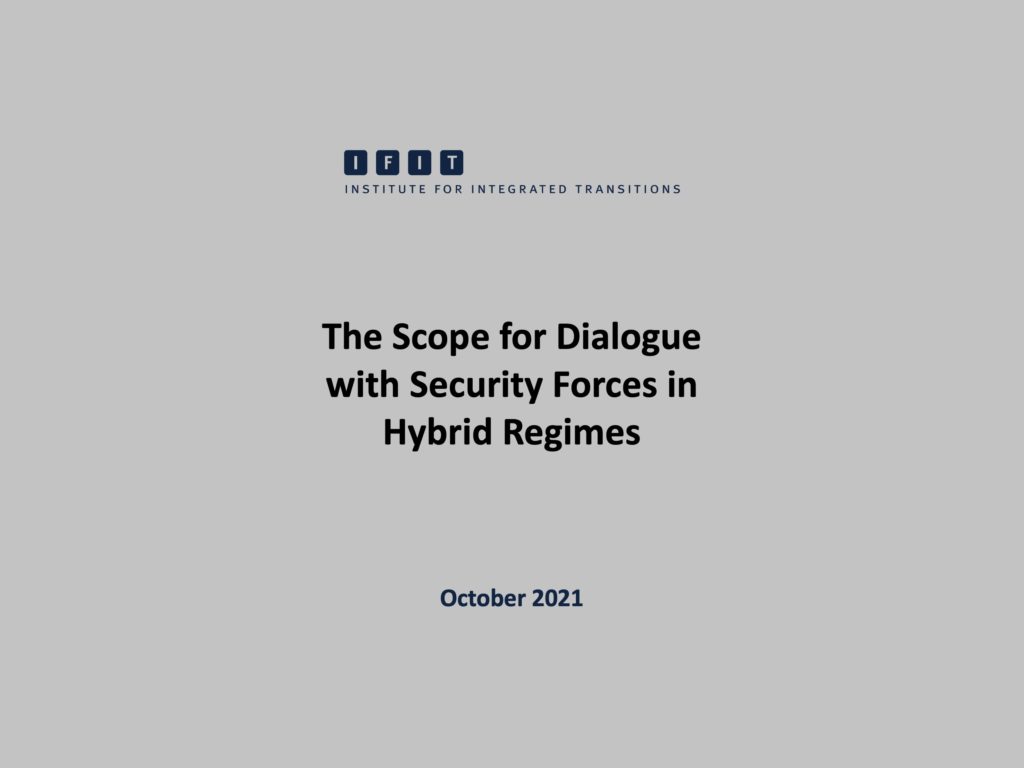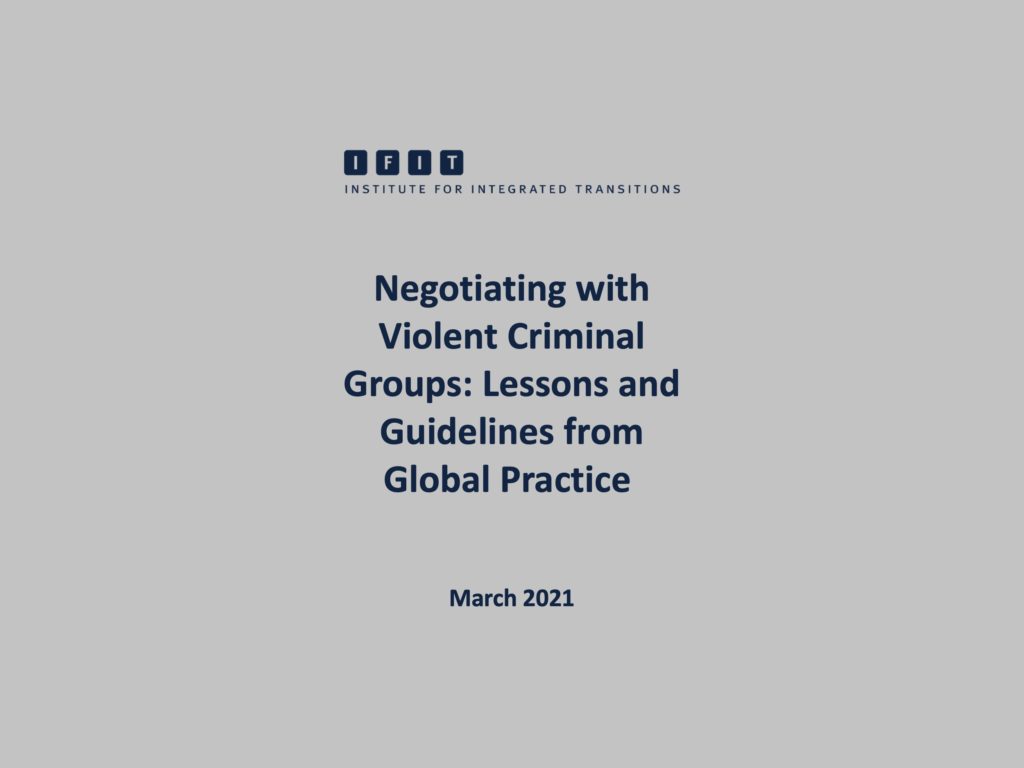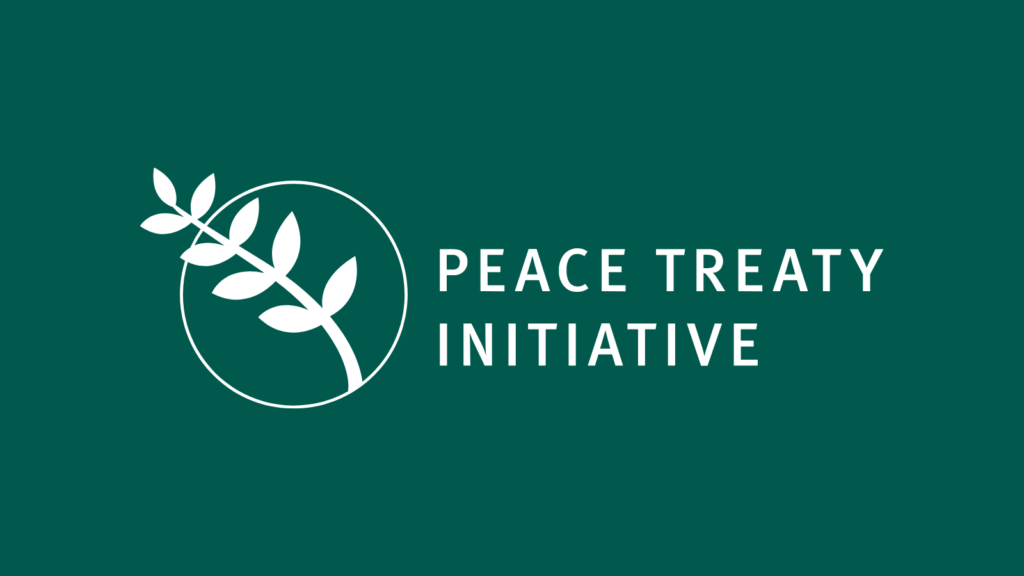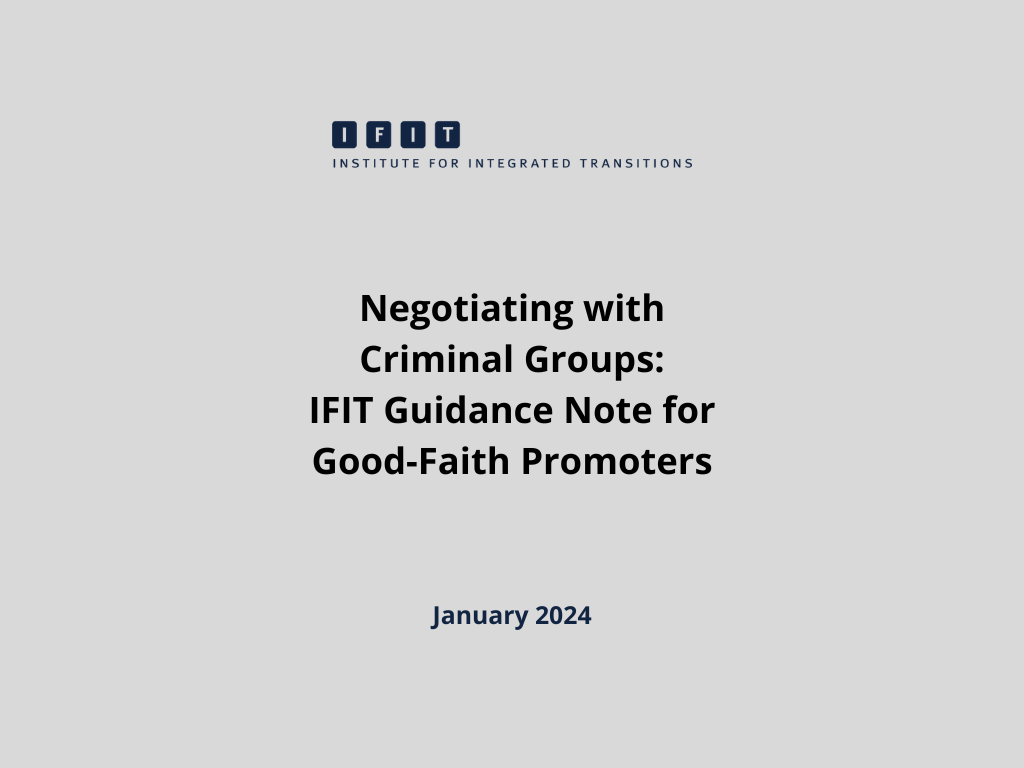Publication
/ Law and Peace
Mar 2025
Dialogue with State Security Actors in Hybrid Regimes: Recommendations for Constructive Engagement
Constructive dialogue between civic and state security actors in hybrid regimes is critical for creating pathways to democratic reform and transition. Yet, in most hybrid regime contexts, civic actors interested in peaceful political change avoid engaging state security actors.
This report highlights the opportunities – and risks – of engagement instead of avoidance. It is the culmination of extensive multi-year research, including 35 in-depth interviews across 10 country case studies: Burkina Faso, Egypt, Georgia, Mali, Mexico, Myanmar, Pakistan, Peru, Sudan, and Thailand. The process engaged hundreds of academics, researchers, practitioners, and civic and state security actors, in dozens of countries around the world.
“Engaging with state security actors in hybrid regimes is both necessary and challenging,” said Alejandro Urrutia, IFIT Associate and project lead. “These actors often hold the key to either democratic transitions or prolonged authoritarianism. Our research highlights practical strategies that civic actors can use to navigate these complex dynamics.”
Recommendations focus on the importance of building trust through personal relationships, using neutral intermediaries, and developing realistic, incremental goals for engagement. One of the central findings is on the importance of dialogue readiness. “Too often, civic actors find themselves unprepared when a window for engagement opens,” noted Urrutia. “Mapping key security stakeholders, identifying potential allies within the system, and fostering communication channels in advance can make all the difference.”
Report co-author Teddy Baker noted the significance of the research for practitioners and civil society leaders: “We believe the publication can be a vital resource for anyone working at the intersection of security and democratic transition. It provides not only analysis but actionable recommendations for those seeking to foster more inclusive and sustainable political change.”
The DOI registration ID for this publication is: https://doi.org/10.5281/zenodo.14998481
You may also be interested in
Constructive dialogue between civic and state security actors in hybrid regimes is critical for creating pathways to democratic reform and transition. Yet, in most hybrid regime contexts, civic actors interested in peaceful political change avoid engaging state security actors.
This report highlights the opportunities – and risks – of engagement instead of avoidance. It is the culmination of extensive multi-year research, including 35 in-depth interviews across 10 country case studies: Burkina Faso, Egypt, Georgia, Mali, Mexico, Myanmar, Pakistan, Peru, Sudan, and Thailand. The process engaged hundreds of academics, researchers, practitioners, and civic and state security actors, in dozens of countries around the world.
“Engaging with state security actors in hybrid regimes is both necessary and challenging,” said Alejandro Urrutia, IFIT Associate and project lead. “These actors often hold the key to either democratic transitions or prolonged authoritarianism. Our research highlights practical strategies that civic actors can use to navigate these complex dynamics.”
Recommendations focus on the importance of building trust through personal relationships, using neutral intermediaries, and developing realistic, incremental goals for engagement. One of the central findings is on the importance of dialogue readiness. “Too often, civic actors find themselves unprepared when a window for engagement opens,” noted Urrutia. “Mapping key security stakeholders, identifying potential allies within the system, and fostering communication channels in advance can make all the difference.”
Report co-author Teddy Baker noted the significance of the research for practitioners and civil society leaders: “We believe the publication can be a vital resource for anyone working at the intersection of security and democratic transition. It provides not only analysis but actionable recommendations for those seeking to foster more inclusive and sustainable political change.”
The DOI registration ID for this publication is: https://doi.org/10.5281/zenodo.14998481








